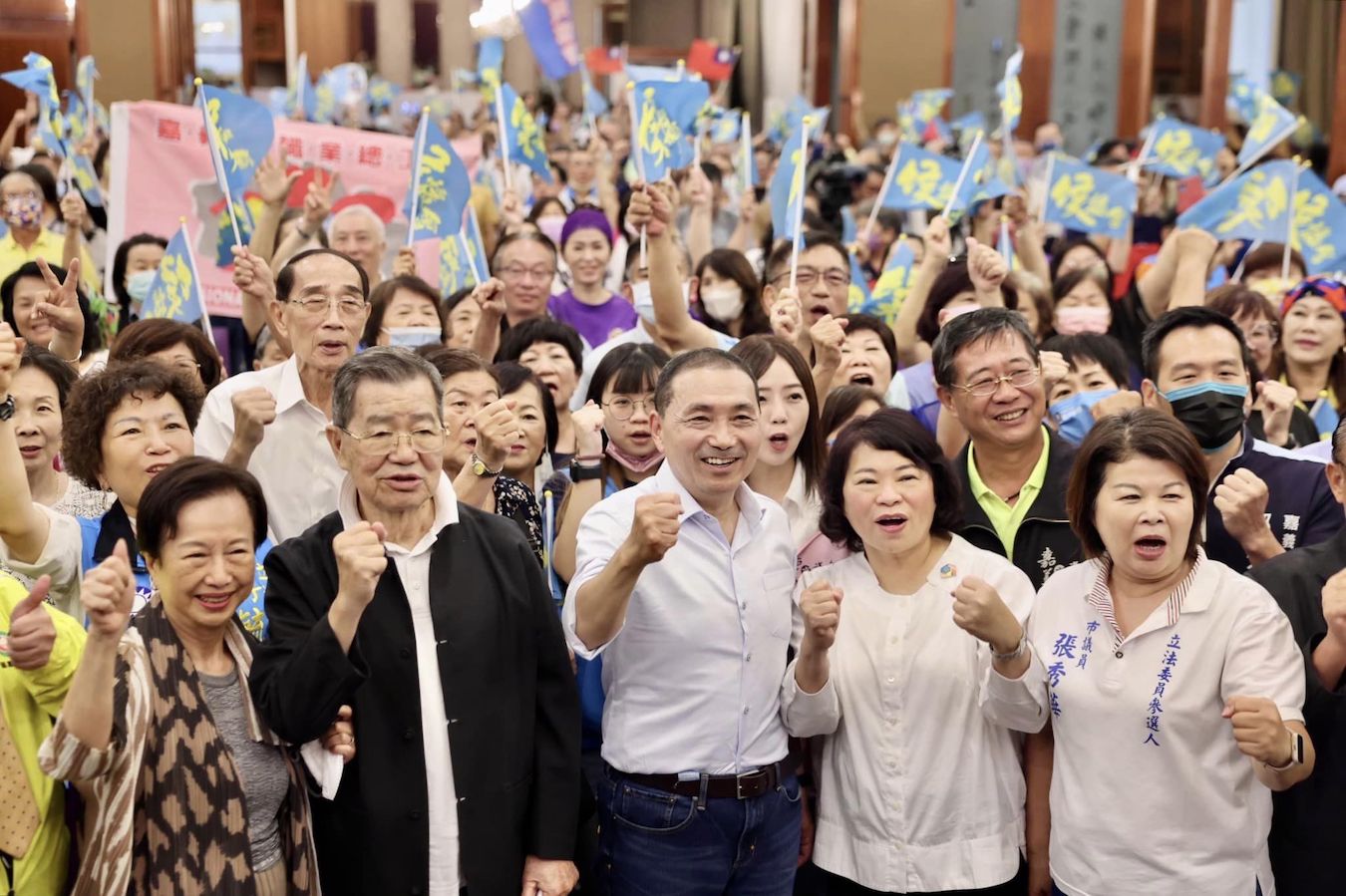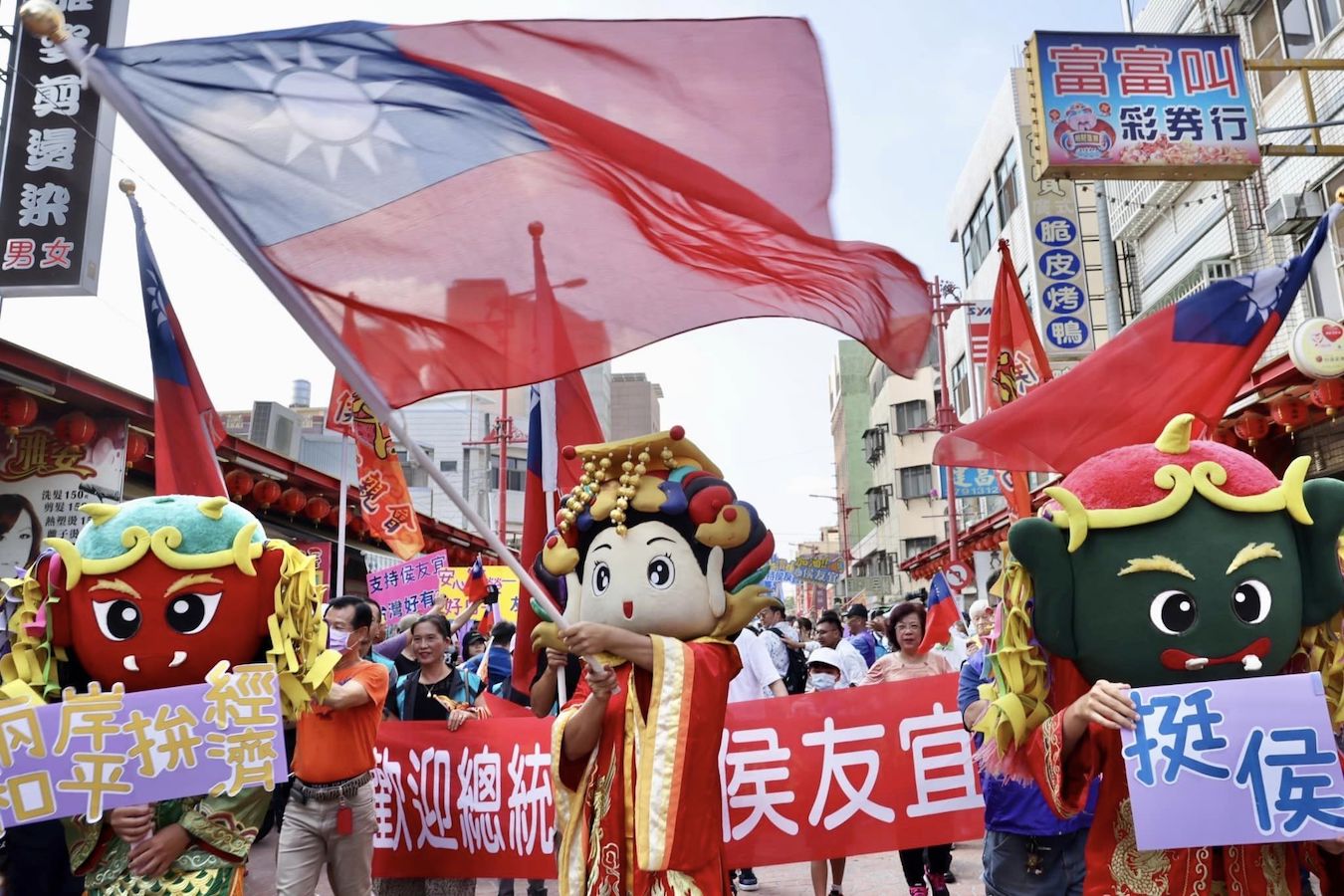by Brian Hioe
語言:
English
Photo Credit: Hou You-yi/Facebook
KMT PRESIDENTIAL CANDIDATE Hou You-yi has begun to lean into advocacy of nuclear power in the course of campaigning at a time of flagging ratings. Hou currently polls worse than former Taipei mayor Ko Wen-je, who is the presidential candidate of the TPP and KMT chair Eric Chu has had to fend off rumors that the KMT is considering replacing Hou as its candidate. Hou is calling for restarts of nuclear plants in Shihmen and Guosheng, the highly controversial No. 4 nuclear reactor, and extending the lifespan of the Ma-anshan plant.
It is not unexpected that Hou would lean into pro-nuclear advocacy, though he was not previously known for any clear stance on the issue. Namely, pro-nuclear advocacy has long been a consistent plank of the KMT.
Notably, the DPP and KMT have changed positions on some aspects of energy policy, between when they were in power and out of it. One example in point proves the liquified natural gas (LNG) terminal, the construction of which was put to the national referendum in 2021. Plans for the original terminal were proposed when the KMT held power, while opposed by local environmentalists.
 KMT presidential candidate Hou You-yi. Photo credit: Hou You-yi/Facebook
KMT presidential candidate Hou You-yi. Photo credit: Hou You-yi/Facebook
But a petition to hold a national referendum on the LNG terminal would not have gained sufficient traction for a referendum to take place until the KMT threw its weight behind the issue. By contrast, as the ruling government, the DPP was put into the position of defending the LNG terminal and its importance to energy transition policy in Taiwan. Nevertheless, the issue also had a security dimension, in that a LNG terminal would assist with maintaining stable energy supply in the event of a Chinese invasion, during which shipments of natural gas to Taiwan would be cut off.
Yet while the DPP and KMT traded positions regarding the LNG terminal, this has not been the case regarding nuclear energy. Advocacy versus opposition to nuclear energy perhaps has more to do with different visions of Taiwan’s historic economic development for the KMT and DPP, as linked to contrasting views on national identity, than with a rational cost-benefit analysis of the advantages or disadvantages of nuclear energy. That being said, when questioned, DPP presidential candidate William Lai was willing to state that Taiwan would consider nuclear restarts in the event of a Chinese invasion–the substrate of Taiwan’s energy debate vis-a-vis nuclear energy that has to do with energy supply in the event of a Chinese invasion rarely is brought up during election cycles.
Hou previously avoided staunch pro-nuclear advocacy. In particular, there are two primary reasons as to why nuclear energy is a contentious issue in Taiwan. Firstly, there are fears regarding what would take place in Taiwan in the event of a catastrophic earthquake along the lines of the 2011 Tohoku earthquake and tsunami, in light of frequent seismic activity in Taiwan. Second, given Taiwan’s limited land mass, there are questions of where to store nuclear waste. There has frequently been a pattern of local protests against nuclear waste storage built in local areas.
As the mayor of New Taipei, Hou previously held off from staunch pro-nuclear advocacy. This was probably in light of the fact that Hou could come under fire in connection to previous controversies about nuclear waste storage in New Taipei.
 Photo credit: Hou You-yi/Facebook
Photo credit: Hou You-yi/Facebook
But leaning into advocacy for nuclear energy may not only be a public stance. In light of rumors that Hou could be replaced with Foxconn CEO Terry Gou or even Chu himself, Hou may be leaning into a traditional stance of the KMT to reassure party supporters that he shares the same views as they.
Indeed, Gou previously sought to do the same with a proposal to build a nuclear reactor in Mount Banping in Kaohsiung. Subsequently, the KMT embraced the stance of supporting the construction of small-scale nuclear reactors across Taiwan.
Hou currently claims, then, that Taiwan should use a combination of renewable energy and nuclear energy. In part, the claim is that Taiwan requires this for not only stable energy supply for the public, but for manufacturers, seeing as freequent power outages might motivate the electronics industry to move out of Taiwan–something vital to maintaining Taiwan’s current importance to the world in terms of providing the majority of the world’s semiconductors. This is not a new stance, seeing as advocates of nuclear energy have frequently taken advantage of members of the public not knowing that nuclear energy consists of only around 10% of Taiwan’s energy mix. To this extent, members of the pan-Blue camp prove skeptical of newer developed means of energy such as renewable forms of energy as unreliable and untested. It is to be seen how far he gets with this stance.

